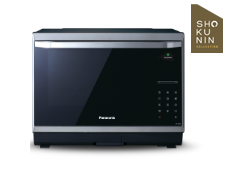The Biggest Mashed Potatoes Mistakes

Whether it’s a casual dinner or festive get-together, mashed potatoes are likely to be on the menu. And though mashed potatoes seem simple, they are actually rather sensitive, and surprisingly easy to fail. There are a lot of things that could go wrong when cooking them: they could get too lumpy, too gluey, too cold or too bland. Here are the six biggest mashed potatoes mistakes to avoid.
Using the wrong type of potato
Choosing the right potato variety is the key to a good mash. For smooth and fluffy mashed potatoes, use starchy ones like Russets or Yukon Golds. A combination of both is great. Starchy potatoes break down better, resulting in a creamier mash. They also absorb flavourings more easily. Avoid waxy potatoes like red bliss and fingerlings as these potatoes have low starch content and do not absorb cream and butter as well as the other starchier variants, which often result in a gluey texture when mashed.
Not salting the water
Like boiling pasta, salting the water is crucial when cooking potatoes. Potatoes absorb the water they are boiled in so when they are cooked in salted water, they will not taste bland. During the cooking process, its starch granules swell and absorb water so if salt has been added to the water, you won’t need to add so much at the end, and the final product will be more well-seasoned.
Starting with hot water
Adding potatoes to boiling water may result in uneven cooking. The outside of the potatoes will end up overcooked, while the inside will remain firm and undercooked. Overcooked potatoes are mealy, and undercooked potatoes are too chunky to whip into a smooth mash. Neither taste good. You’ll know your potatoes are perfectly done when a sharp knife passes through the potatoes without any resistance. For even cooking, place the potatoes in a large pot and add cold water to about an inch above the potatoes, add salt. Then place the pot on the stove and begin cooking.
Adding cold butter and cream
Butter and cream are critical for mashed potatoes as they add great flavours to the final product. However, using butter and cream straight out of the fridge will cool down otherwise piping-hot potatoes. They also don’t get absorbed into the potatoes very well.
Allow the butter and cream to come to room temperature, or gently heat them on the stove before adding them to the potatoes. This way, the potatoes will absorb the warm dairy much easier.
Overworking the potatoes
Starch is released when potatoes are mashed. The more the potatoes are worked, the more starch gets released. When too much starch gets released, the potatoes become gummy and gluey. The goal should be light and fluffy.
Overworking the potatoes can happen in a couple ways: either by simply handling them too much, or by using a food processor, blender or hand mixer, which mixes the potatoes too aggressively. Instead, use a potato masher and mash with hands.
Drying out the potatoes
Making mashed potatoes in advance and reheating them too many times may dry them out. To maintain its texture, mashed potatoes can be reheated in a double boiler. This will gently warm them through without the risk of scorching the potatoes at the bottom of the pan. Alternatively, just steam them back in a Panasonic microwave oven using the pure steam or micro steam function.

Tips:
To save time, mashed potatoes can be easily cooked in a Panasonic microwave oven. Simply wash and peel potatoes, prick them several times with a fork and place them in a microwave-safe dish. Cook on micro power mode for 8 to 10 minutes or until cooked. Transfer to a large bowl and add cream, butter, salt and pepper. Mash until desired consistency and serve warm.










